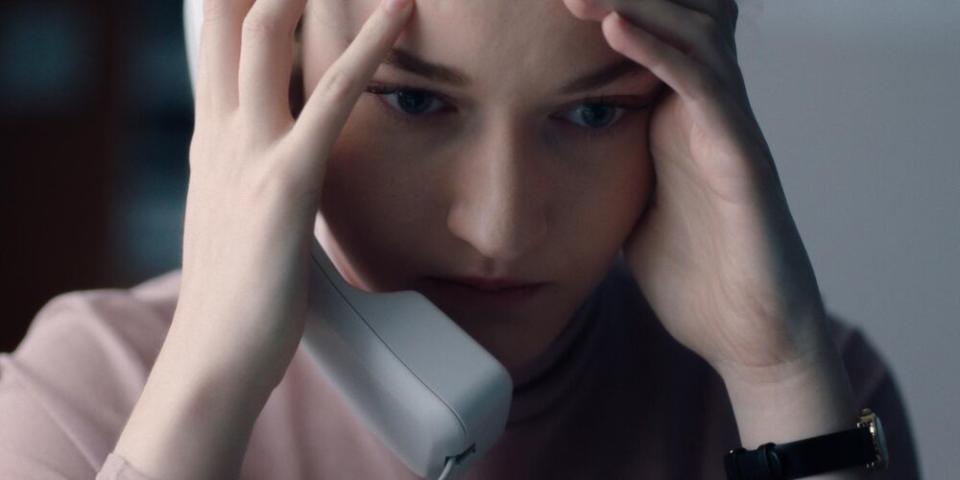Julia Garner holds the center of slow-drip #MeToo drama The Assistant: Sundance review

Harvey Weinstein doesn’t appear anywhere in Kitty Green’s spare, nervy #MeToo drama The Assistant, and his name is never mentioned. But he’s the bogeyman hovering at the edge of every frame: a clear model for the mercurial film executive, also unseen, whose offstage movements guide every moment of the day for Jane (Julia Garner).
From the minute she sets out for his Tribeca production office in the early-morning dark, Jane never really stops: She Xeroxes scripts, fetches water, books flights and car services, fields endless phone calls. (There are two others like her; busy young men in headsets who wear the air of something senior to her, even if they’re not).

It’s thankless work, more like a sort of executive maid, and unpaid; nobody is asking about her honors degree from Northwestern when she’s washing dishes in the breakroom. And when she does encounter her boss — through his closed office door, on the phone or over email — it’s mostly to be screamed at or reprimanded for some perceived failing: fielding a call from his furious wife, or daring to question the presence of a pretty new assistant left in her care.
Writer-director Green (Casting Jon-Benet) films scene after scene of these quotidian tasks, nearly in real time. The lighting is grim and industrial; the pace deliberately glacial. At times, it feels like watching The Devil Wears Prada be reworked by Ingmar Bergman.
But small moments accumulate: in the way Jane doggedly rolls her Sisyphean rocks up the hill, one by one; and the way everyone — passing executives, her fellow assistants, the beautiful young women who perch anxiously in the waiting room — hardly deign to register her existence. (Even a little girl treats her with a sort of royal disdain.) This, Green makes constantly, crushingly clear, is what it feels like to be the least important person in the room.
With so little exposition, there’s not much chance for her protagonist to become a whole person in the audience’s eyes, but Garner (a recent Emmy winner for her turn on Ozark) puts everything into Jane’s watchful gaze: fear, anxiety, incredulity, exhaustion; the rare lightning-bolt flash of rebellion. And she finds the telling details in her smallest interactions, whether it’s a painfully awkward town car ride with one of her boss’s pillow-lipped “discoveries,” or a late-night phone call to her sweet, oblivious father.
The presence of Garner and Succession’s Matthew McFayden (as an insidiously unhelpful HR rep) might lead casual viewers of the movie’s trailer to think that The Assistant will follow a more conventionally satisfying narrative path than it does. By almost any metric, this movie is not entertainment; it’s slow, painful going — even the continued inference of sexual misconduct, and the demi-climax that Jane’s attempt at confronting it leads to, register at a sort of muffled hum.
Instead of melodrama, the movie finds its traction in parsing out micro-aggressions and mood: a sort of devastating slow-drip portrait of the power structures that allowed a man like Weinstein to happen — and keep more like him in place, untouched by any justice a hashtag can reach. B+
Related content:

